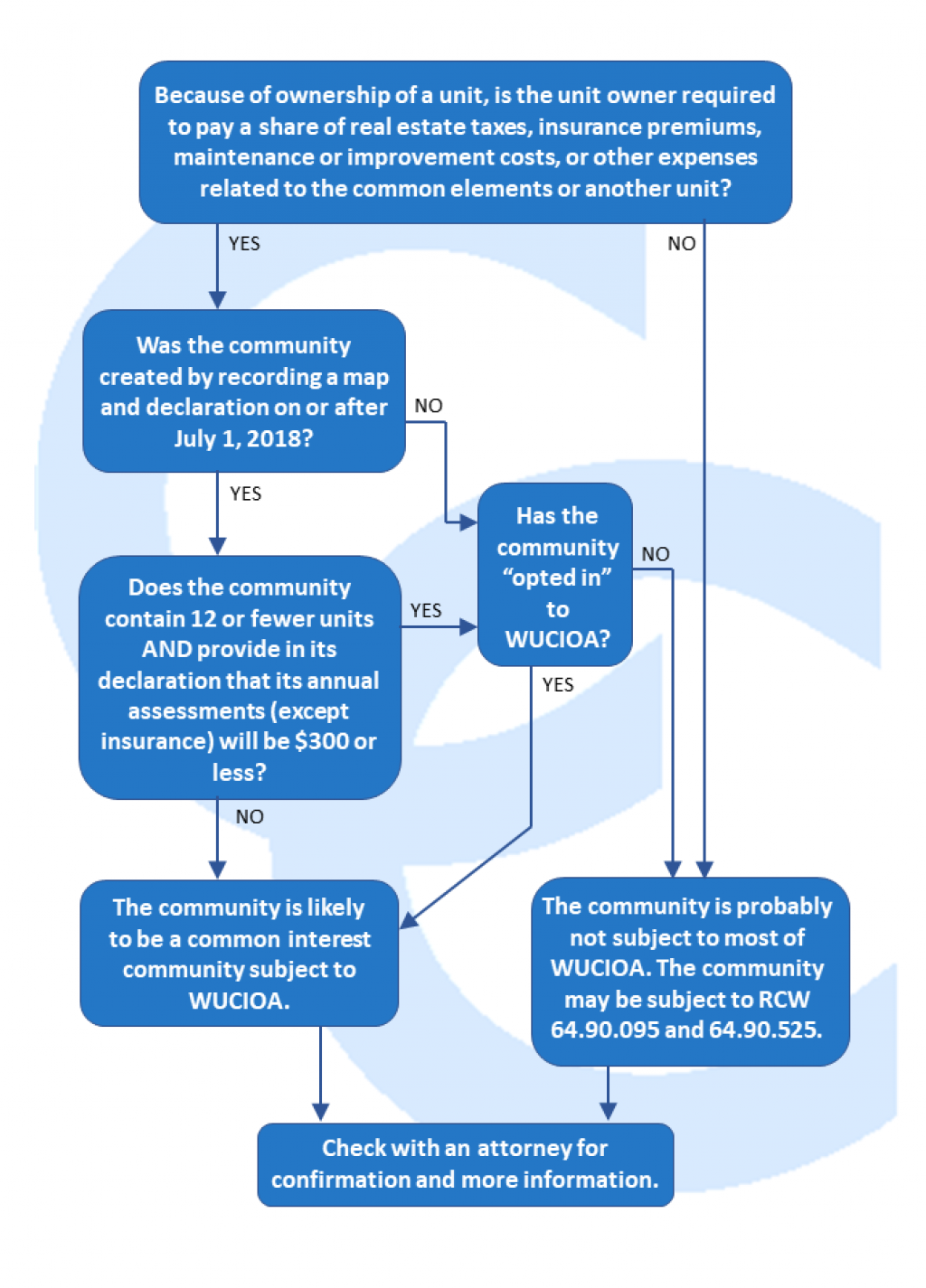The Washington Uniform Common Interest Community Act (WUCIOA) became effective on July 1, 2018. It is codified at Chapter 64.90 RCW. This statute implements new rules for common interest communities, including condominiums, planned communities, and co-ops formed on or after its effective date.
Many of its provisions may not be waived by formation documents and strict compliance is required. The WUCIOA combines aspects of the Horizontal Regimes Property Act, the Condominium Act, and the Homeowners Associations Act with new concepts. Listing all the new requirements is outside the scope of this blog post, but be aware that they concern everything from creation of the community, turning the community over to unit owners, management during the life of the community, and the disposition of assets if the community dissolves. Anyone seeking to form a new common interest community or opt an old community in to the WUCIOA should first speak to an attorney knowledgeable in Washington real estate law to learn about new requirements and obligations.
Some of our HOA and developer clients have asked whether the WUCIOA applies to their communities. The following flow chart can help make an initial determination about whether a community may be subject to all the provisions of WUCIOA:

The first consideration on the flow chart is whether ownership of a unit obligates that unit owner to take some action, such as paying for maintenance of a building or common area. Our understanding is that generally, in order for the community to be considered a “common interest community,” that obligation must be established or related to a right established during the subdivision, planning, or platting of the community. For example, a well users’ agreement formed unrelated to a subdivision between individual property owners would probably not create a common interest community. Similarly, road maintenance agreement entered into between neighbors would probably not create a common interest community. On the other hand, if a developer platted a fifteen-lot subdivision, and a well users’ agreement and road maintenance agreement were made as part of the subdivision development process, that subdivision would probably be a common interest community.
It’s important to remember that only common interest communities formed on or after July 1, 2018 fall under WUCIOA, unless that community has specifically “opted in” to WUCIOA under RCW 64.90.095. As long as a community formed prior to July 1, 2018 does not opt in to the WUCIOA, the statutory scheme it has been operating under still applies. For example, if a condominium association was formed between July 1, 1990 and July 1, 2018, it will continue to be governed by Condominium Act. Further, even the community formed on or after July 1, 2018, a community with twelve or fewer units and assessments under $300 is exempt, unless it opts in. RCW 64.90.075.
However, there is one major section of WUCIOA that applies to all common interest communities, including those formed before July 1, 2018 and small communities: RCW 64.90.525. This statute contains new requirements for the preparation and presentation of a community’s budget. Within 30 days of adopting a proposed budget, the board of the community must present it to all unit owners and schedule a meeting for the unit owners to vote to ratify the budget. The statute also lists the required elements of a budget. We encourage all our HOA, planned development, and condominium clients to read RCW 64.90.525 closely and check with an attorney to ensure their community is meeting its requirements.
We expect changes to the WUCIOA to be forthcoming as the state, local governments, homeowners, and the courts adapt to the new law. An attorney experienced in Washington land use and real estate law will be your best resource for how the WUCIOA could affect you.
Disclaimer: This article and blog are intended to inform the reader of general legal principles applicable to the subject area. They are not intended to provide legal advice regarding specific problems or circumstances. Readers should consult with competent counsel with regard to specific situations.
To receive updates or be informed when we post a new article.
